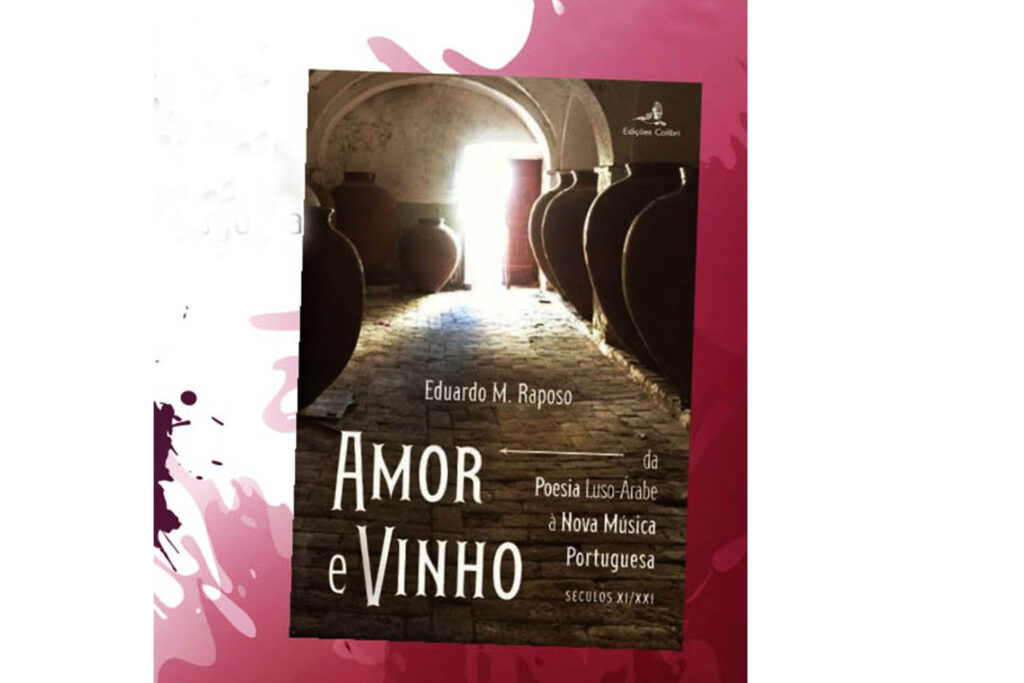The book “Love and Wine. From Luso-Arabic Poetry to New Portuguese Music (18th/18st Centuries)”, by Eduardo M. Raposo, will be presented at the Municipal Library of Silves, on March 30, at XNUMX:XNUMX pm.
The initiative includes the tasting of Silves Wines and the interpretation of musical themes, by Eduardo Ramos.
The presentation of the work will be attended by Rogério de Brito and José Veloso, in an approach to how the themes love, wine, poetry, music and the struggle for freedom are related and are so closely linked to the History of Portugal.
This initiative is the result of a partnership between the Municipality of Silves, the Alentejo Document Studies Center, Colibri publishing house and Paxá Wines.
Janita Salomé wrote about this book: «With his sensitivity on edge, the author «disarms us» (I mean, fascinates us) by talking about love, wine, music, poetry, and the fight for freedom to lead us, on a unique path, along paths little trodden in the History of Portugal».
«This is clear evidence from the importance of the astonishing phenomenon of the encounter of civilizations operated over millennia in the Mediterranean space for the construction of the foundations of our identity. (…) Let's return to love, wine, and poetry, which throughout our history have been fundamental food in the experience and sedimentation of what is most noble and enriching memory can keep in a distant view of our past», added the musician. .
«As for Portuguese-Arabic poetry, rivers of love and wine, without shores or mouths, flooded our memory and we sailed through them to the present day with the certainty that the living wine of love is ambrosia that we, the gods of our existence, we will have as food in the liberating eternity of poetry», concluded Janita Salomé.
For his part, editor Fernando Mão-de-Ferro emphasizes that «this book, in addition to the extensive and precious information on the Arabic poetic influence on the Portuguese language, throughout its history, has the allure of confronting us with the reality of known for a long time, but which, in our times, tends to be forgotten and hidden – the Portuguese are a people resulting from different ethnic encounters over centuries of coexistence with each other».
«It is from these encounters, sometimes peaceful, sometimes of conflict, that we are descendents, to a greater or lesser extent. This observation should be a political and cultural argument against the radicalisms that proliferate today, both in the Muslim and Christian fields, and which incite so much to violence and intolerance”, he says.
The work thus presents a thousand years of poetry in more than 180 poems, «since the century of Almutâmide, genesis of our lyrical poetry, passing through D. Diniz, João Roiz de Castelo Branco, Bernardim Ribeiro, Gil Vicente, Camões, Bocage, Pessoa, we arrive at Nova Música Portuguesa, where we highlight Janita Salomé, Vitorino, Rui Veloso, Sérgio Godinho, Trovante, Luís Represas, Fausto, Brigada Victor Jara, Jorge Palma and João Afonso, «singers» and performers, who sing about love and wine, the sun, the south and the sea of our expansion», adds Fernando Mão-de-Ferro.
«Sung poetry assumes here the aggregating link of the Portuguese nation as it happened in decisive moments of our history: in the 25th century, with Luís de Camões, in the English Ultimatum, or with José Afonso, on the 1974th of April XNUMX, with Grândola Vila Morena », ends the editor.
Eduardo M. Raposo was born in 1962, in Funcheira, Ourique. At almost five years old he headed for the Diaspora. Subsequently, in the restlessness of “being Portuguese”, he has traveled the utopia of the immense South. That's how he got to writing, almost 40 years ago – journalism and beyond.
In the 80's, it began intense activity of cultural intervention and in the 90's of academic and associative research, which remains, where the search for the totality of being and the beautiful are present.
He directed cultural magazines (Memória Alentejana), organized more than 80 colloquia, gatherings and cultural meetings, published 500 articles and interviews in the press.
He publicized the «Canto de Intervenção» and the «Cante» in scientific publications (Estudios Extremeños) and international congresses (PHI CHAM, Sorbonne, 2019).
He presented dozens of music and poetry shows and gave lectures (Casa da Música). He organized tributes to Lorca, Urbano, Adriano, Almutâmide, Brito Camacho, Mestre Salgueiro and others.
He has published six books: three biographies (Cláudio Torres, Urbano, Fonte Santa), directed a poetic anthology, two on the «Canto de Intervenção» and participated in the Encyclopedia of Music in Portugal in the XNUMXth Century. A builder of utopias and radical tolerant, he has a PhD in the History of Culture and Contemporary Mentalities and is a researcher at the CHAM at FCSH/UNL.
He is part of the Scientific Committee of the II Congress on «Cante», in preparation and is developing studies on «Cante» and taverns. It sacralizes friendship and writes as learned.



















Comments